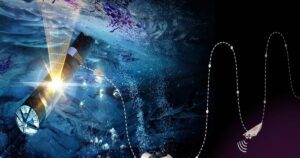
[ad_1]
highlights
NASA has achieved success in making potable water from the urine and sweat of astronauts.
This step of NASA is being highly appreciated.
Washington. The American Space Agency NASA has achieved a major success. NASA has achieved great success in converting about 98 percent of the urine and sweat of astronauts living in the International Space Station into drinking water. Every astronaut on the space station needs one gallon of water per day for drinking, cooking and cleaning. Astronauts have used systems that are part of the Enviroment Control and Life Support System (ECLSS) for this discovery.
The hardware that ECLSS is made up of includes water recovery systems. Which collects the wastewater and sends it to the water processor assembly. Then potable water is produced. Explain that an advanced dehumidifier is used to collect the moisture released in the cabin air by the breath and sweat of the cabin crew. Apart from this, water is extracted from urine using urine processor assembly, vacuum distillation.
Christopher Brown, a Johnson Space Center team member who manages the space station’s life support systems, said BPA increased the amount of clean water removed from urine from 94 percent to 98 percent, the highest ever. . He said that this method of restoring potable water can help in long space missions like Mars.
Christopher Brown, part of the Johnson Space Center team, said, “This is a very important step in the development of life support systems. Let’s say you collect 100 pounds of water at the station. You lose two pounds of that and the other 98% just hangs around. Keeping it going is a great achievement.”
.
FIRST PUBLISHED : June 27, 2023, 07:55 AM IST
[ad_2]
Source link





